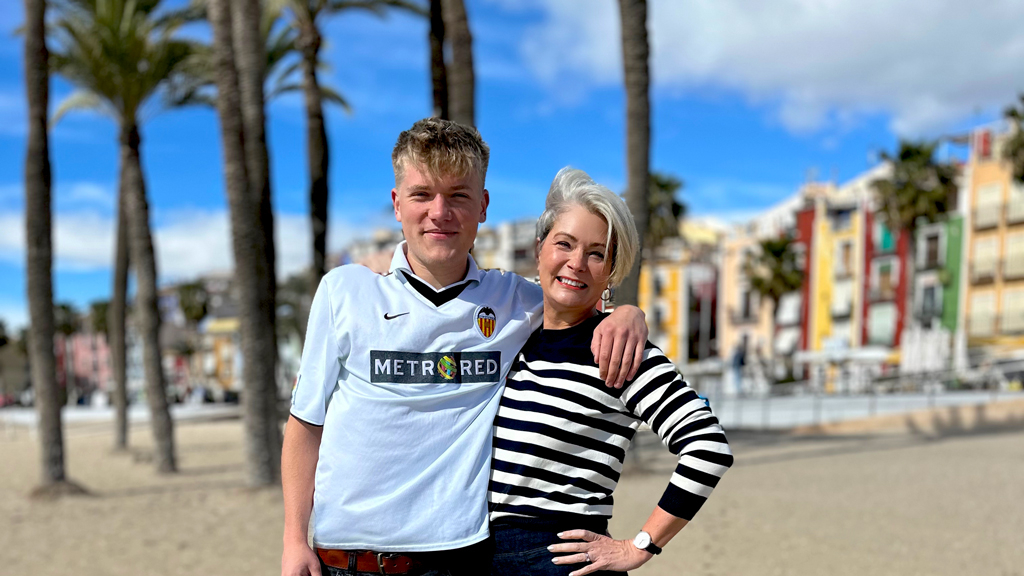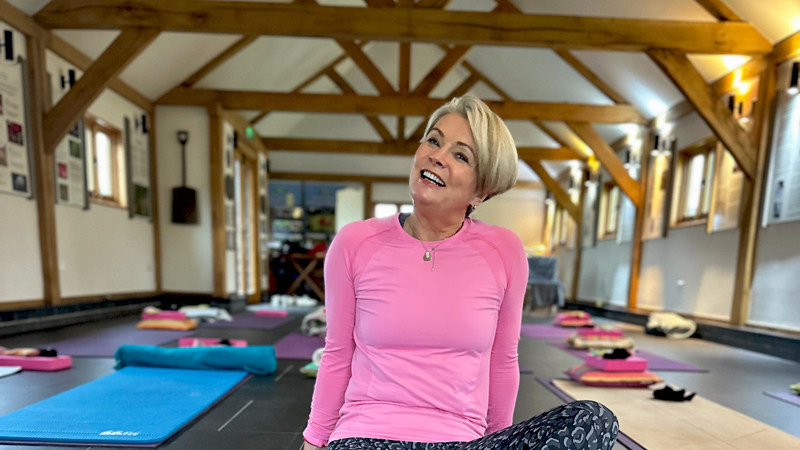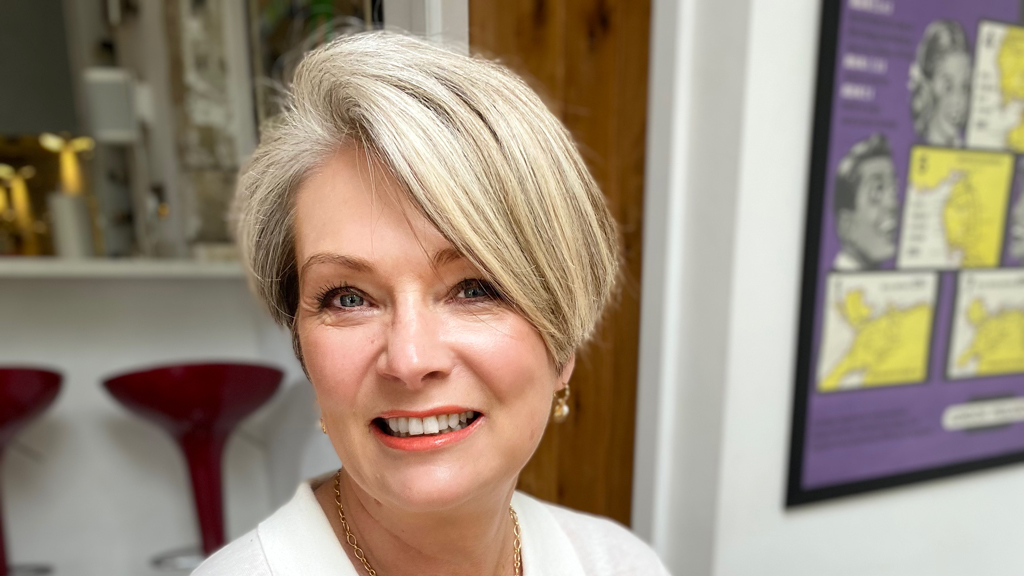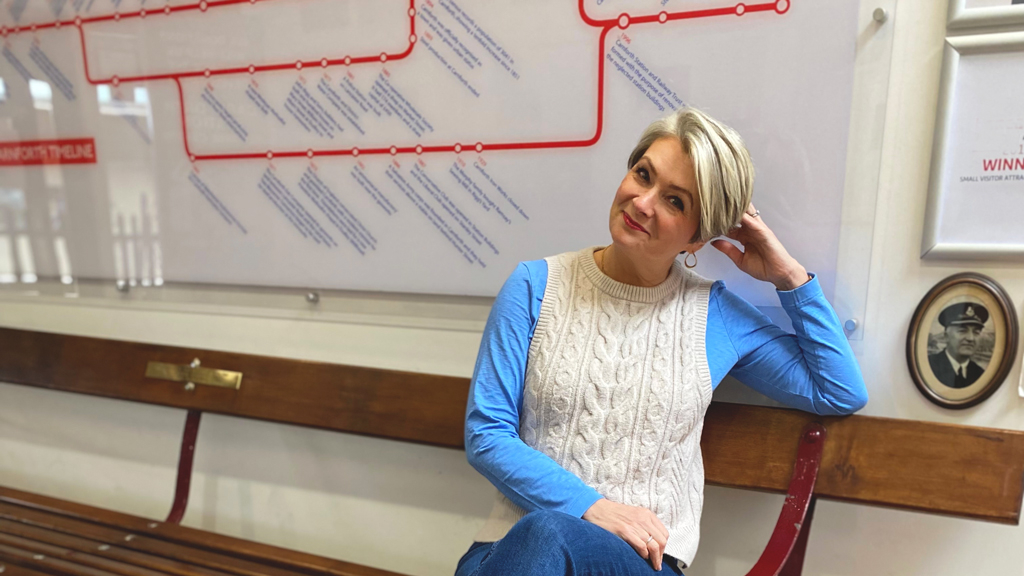So, here we, are in the retail hiatus of January when there is very little in the shops worth looking at. That means it’s time for us to get into some of the deeper issues you’ve been asking me to cover – such as what is midlife in the twenty-tens (as this decade is now being called) and how can we age well? It’s going to be one of those long posts when you may need a whole pot of tea rather than a just cup to keep you going!
With this being the year that I turn 50, I want to arrive at my birthday in good shape which means I’m in the right mind to work on these posts. I’ve thought really hard about how to develop what I think will turn out to be a series and so, rather than just sharing my own thoughts with you, I’ve researched writings about midlife carefully over the last few months. I’ve devoured as many books, articles and papers on both midlife and menopause as I can find. Surprisingly there are not very many helpful ones and it is impossible to find any consensus on what it is we’re living through.
I have also tried to grill interview everyone I have spoken to between the ages of 39 – 65 over the last few months which has made for some very interesting conversations.
What is midlife in the twenty-tens?
What struck me from the outset is that ageing, like football, is a game of two halves. There is what we will call chronological ageing – everything that concerns the decline and eventual fall of our bodies but there is also cognitive ageing. By this I mean the age that we feel inside our heads – and I have yet to find a single person who feels as old in their minds as the age stated on their birth certificate.
So this is how I’m going to approach it, by tackling these two halves separately. Although we are mostly women here, I don’t want to limit our conversations purely to the chronological and menopause – although I will come on to that. I want to start with the cognitive side because I think the physical symptoms are a bodily manifestation of something far bigger that happens to us at this age. It is a whole life shift. If we can achieve some perspective in our minds, the body might be easier to deal with.
With this post I’m going to set the context. The most interesting bit for me of course will be what you have to say in the comments because I really hope to get everyone talking.
Why is there so little to read about midlife?
When I start to talk to people, women in particular ask this question with an overtone of desperation. They will point out how easy it was to find books to guide them through pregnancies and those with daughters will talk about the resources that are available for puberty. However there is very little that we can relate to for either menopause or midlife.
Admittedly part of the reason for this is attitude. I noticed that when I raised the subject, there was a reluctance to talk about it – even among people I know really well (although once they got going, they couldn’t stop).
Initially, when I explained that I was trying to gather opinions of what it is to hit midlife in this decade, I found that people reacted in one of two ways: they either winced or laughed derisively. On the whole they also found it hard to talk about anything other than the physical symptoms of midlife which helped me to realise how few people see it as being anything other than a bodily transition.
I think it is important to begin by acknowledging the socio-cultural perspective which is why I wanted to make this a discussion about midlife specifically in the twenty-tens. You see we are the first generation to be midlifers in this post industrial, increasingly digital society. There is no blueprint for what the second half of our life will look like.
When I look at my own family, I can see that there was a clear path ahead for my mother (42 years older than me) and that the same path was then followed by my sister (20 years older than me). They were both teachers and they had a lifelong goal of taking early retirement as soon as it was made available to them, certainly before they reached their 60th birthdays. They were then able to stop working and live very comfortably for the rest of their days.
Now, anyone born after 1961 will not qualify for a state pension until they are at least 67, probably older. Those who have private pensions have seen them ravaged by rocky stock markets and those of us who have spent a large part of our career being self employed will probably still be bashing away at our keyboards in our coffins. There is no longer any kind of certainty when it comes to retirement.
So, the reason that there is so little information or guidance is that our generation is charting new territory. And if our path is unclear, so is our future identity.
So – what is midlife and when does it start?
Lots of people are irritated by the phrase midlife, stating that mathematically we are more than halfway through our span by this stage. But if you take infancy out of the equation and look at the average period of adulthood, from 18 to 80 years old, you will find that the age of 49 is exactly the mid point of being an adult. So if you are lucky enough to live life’s full span, you are pretty much halfway through.
I find that quite a pleasing thought to begin with. You see when I look back from my pivotal age of 49, I can see that the first half has passed in a complete flurry of being busy and so it gives me hope that I’ll be able to be more thoughtful about the second half of my life.
I often mention the bereavement counsellor that I was assigned by the local cancer charity that supported our family during, and after, my parents’ dying days. I only had six sessions with her but the help she gave me was invaluable. As I have said before, one of the best pieces of wisdom she shared with me was that people often find that their 40s are like the interval between two acts of a play. It can be the time when everything is up for re-evaluation.
Common myth would term this ‘the midlife crisis’ but there is a proper term for the state that many people find themselves in: liminality – when one stage of life has ended and you find yourself standing at the threshold of something new and unknown.
When I dug deep, I found that the following issues are the ones that most people seem to need to revisit before they feel able to move on. You review the choices you have made in your past, thinking about your education and whether you have made the most of it, looking at the twists and turns of your career path and the roads not taken. You worry about your children – dwelling over whether you had too few or too many and whether you have been a good enough parent. You take a long hard look at your relationship, whether you still like that person let alone love them and often linger nostalgically over the ones that got away. It is often a period of self sabotage when you berate yourself for your choices.
For lots of people it feels like a kind of mourning but it is all part of the process of transition. Go with it and you will hopefully come through the other side feeling cleansed. (I must add a caveat here that if you have had a troubled past it is probably better to do this with a counsellor who is qualified to help you through).
The scientific backup
For those of you who are thinking this is new age nonsense, this period of sudden brain activity has been backed up by a Harvard study. In the 90s, Harvard Medical School was doing some research into adolescent brain development. They discovered that the adolescent brain sees a big increase in myelination (growth that boosts the brain’s processing power).
The surprise result was that they noticed from the control group that the same thing was happening in middle age, when there was a second spike and a huge growth spurt in brain power. It leads you to wonder whether this spike is specifically purposed for the self-assessment that happens in both adolescence and midlife and the reinvention of self that often ensues.
A job for a further post will be to look into how this relates to the ‘menofog’ that so many of my friends report dealing with.
What happens next?
Well I think I’m still mostly in the introspective phase – I’m certainly not through the other side and neither is anybody else because, as I have already said, we are the first to go through this lifestage at exactly this time. I have, however, read books by a few women, now in their 60s, who write almost evangelically about the next stage being the best time of their lives.
Amongst them, Suzanne Brown-Levine talks about the “F*** You 50s” being a time when you put yourself at the centre for the first time since your youth. Dr Christine Northrup celebrates being “a woman of the harvest,” someone who has ripened and can now reap the benefits of her wisdom. However the thing that stands out for me here is that they are both of the baby boomer generation whereas we are Generation X. I have a living illustration of the differences between the two in my own family. The youngest of my brothers and I are only 13 years apart in age and yet in terms of status and expectations, we are from different aeons.
So I am hoping that at Midlifechic we can, between us, begin to formulate what the second half might look like for our generation and talk about how it feels. For lots of women, I have discovered this is actually a time of rage, fury and disappointment and that makes sense because although we are at the beginning of something new, we also need to acknowledge that we have reached the end of an important phase in our lives.
Maybe that will come to me but for now, conversely, the biggest change that I have noticed is a growing sense of calm contentment. As people are asking me what I would like for my 50th birthday, I am surprised to find that I want very little when it comes to material things – but this is counterbalanced by a growing thirst for new experiences, good times spent with the people I love. I have a strong feeling that there are some great adventures ahead and that I will have the time and wisdom to appreciate them whilst they are happening rather than just in hindsight.
So far, this is the piece of feedback that makes the most sense to me from someone who has arrived at the other side. It comes from Marina Benjamin in her book ‘The Middlepause.’
“There are other things I have gladly renounced besides the insatiable ambitions of youth. There is the quest for external markers of success, the wide playing field of sexual conquest, the idea that I will ever return to my peak fitness, the grievances I held against my parents for their inevitable failures, and more besides. I feel lighter for it. But also more grounded…my needs are leaner and my storehouse fuller. I trust my experience and expertise far more than I used to and I better know my limitations. I’ve come by much of this as a result of working through grief, mining my myriad losses in order to reach a deeper bedrock of identity…against the diminishments of ageing that I have resented so sorely – the loss of vigour, organs, lustre, the loss of a parent, the loss of an unquestioning faith in possibility; the necessity of letting go of my former selves, some of them much cherished…”
I like the idea of letting go. When everyone out there is busy detoxing their bodies and decluttering their houses, I like the thought of decluttering the soul. So I’m leaving you with this concept as a starting point. I apologise for not responding to your recent comments yet and I’m hoping you understand that I’ve been desperately finishing the reading I needed to do to prepare for these posts. However I will be jumping eagerly on what you say next to continue this conversation so please do join in and tell me what you think and how you feel in the comments.
These are the kinds of things I want to understand. How are you finding this stage of midlife? Do you see the next stage as a positive or do you feel it is all downhill? Have you noticed that your state of mind is changing or is menopause purely a physical thing that you feel you will survive, coming through fundamentally unchanged? Are you feeling a sense of opportunity or dread? Do you think the chance to keep on working and contributing is a good thing or do you envy the baby boomers their pensions and time on the golf course? Have you come through the other side – what advice would you give to those who are bubbling away in the cauldron? There are no right or wrong answers, just join the conversation and tell me what you think.
You see another point that Marina made in her book was that she found the best way of getting through this midlife stage was to have what she terms a ‘horizontal’ support group of women i.e. women in the same lifestage, experiencing similar things. Of course this is always important but I can’t help thinking that with the lack of information to hand, it is more true for midlifers than anyone else. I am so glad that we are here in this community because I think we can not only help each other, but also the women who are following close behind by opening the debate and trying to pin down the answers to “what is midlife in the twenty-tens?”
I hope you’ve enjoyed this post on the cognitive side of Midlife. The comments below from readers are fascinating so don’t miss the opportunity to read what other women have to say about this stage of their lives. If you would like to read more about chronological ageing and the symptoms of the menopause that Midlifechic readers are experiencing, you might like to read the Physical Symptoms of Midlife.
Disclosure: What is midlife in the twenty-tens? is not a sponsored post
Other posts you might like
The Physical Symptoms of Midlife – chronological ageing and the menopause





